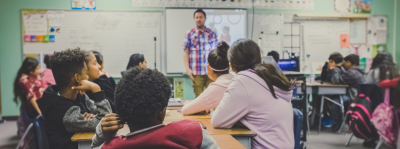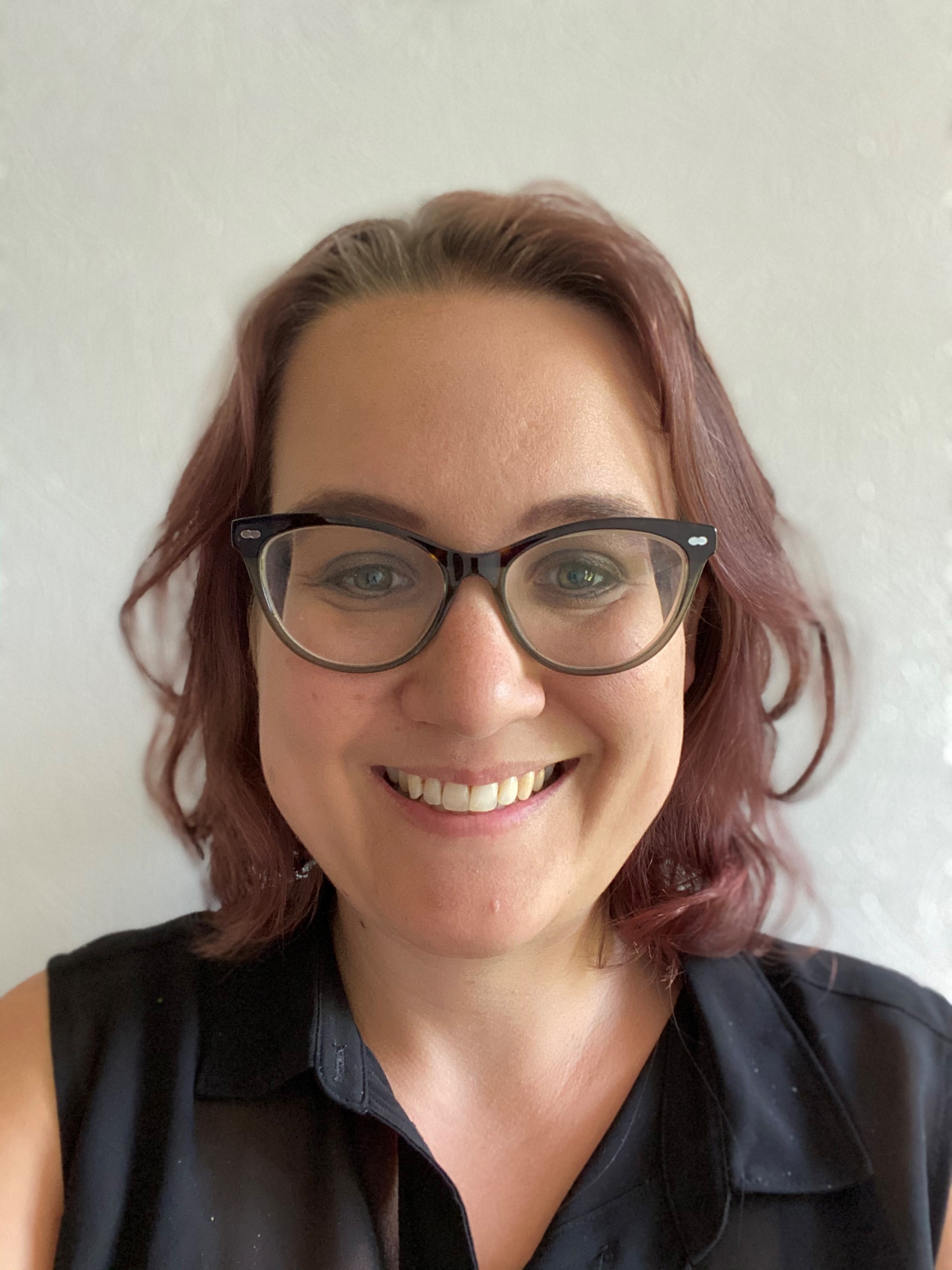 David Williams - What does youth work look like in Wales?
David Williams - What does youth work look like in Wales?
When speaking with families, friends and others outside the youth work profession I have often been asked "what is it that you do exactly?" For those of us working in, or connected to the profession, the answer is very clear. We build relationships with young people in a range of settings: in community buildings like youth clubs, in parks and outdoor spaces and in schools and colleges. In essence, wherever young people are and want to engage with us.
Working alongside young people, we create safe spaces that are designed and built in response to their needs. We collaboratively provide and create opportunities to assist young people on their journey into adulthood and independence. The National Occupational Standards for Youth Work state that a key purpose of youth work is to:
“enable young people to develop holistically, working with them to facilitate their personal, social and educational development, to enable them to develop their voice, influence and place in society and to reach their full potential.”
Youth Work has a clear set of guiding principles and purposes. It’s underpinned by a professional learning pathway and has been around for hundreds of years. The first thing you need to know is that the provision and delivery of youth work is based on the process, not the product. In their entry to The Journal of Youth Work 'The process is the product', Gallagher and Morgan quote Beck and Purcell who say that:
“…rather than uncritically accepting an imposed set of standards devised outside the local community, which may not necessarily take into account that community’s own values, culture and history, any statement of human rights becomes a starting point for critical reflection and action.”
Youth work is centered on a rights-based approach to delivery, so it's vital we recognise and respect the communities young people belong to and the importance of having a voice in informing and shaping the world around them. Outwardly, one youth work provision can look very different from the next. An open access youth club offering leisure and life skills opportunities and a Post-16 street-based employability project may seem worlds apart but the process of creating them is consistent with youth work delivery and methodology.
Youth work has its roots in providing informal and non-formal learning opportunities for young people, in a time, space and way in which young people feel comfortable, have ownership of and an interest in. Youth work doesn’t seek to direct a young person's learning, growth and development but sees itself more as a partner in supporting and enabling young people to come into the fullness of their capacity and desires. This practice is underpinned by principles of inclusion and equal opportunity. To better understand how youth work educates young people, we need to be aware of the Five Pillars of Youth Work.
Educative
Within an open access youth club, young people are developing their knowledge and understanding of themselves and the world they live in. They are co-designing and taking part in opportunities to learn how to problem solve, work alongside others and how their own personal values interact with those of their community and peers. The Post-16 work club is responding to the needs of young people to develop practical and purposeful opportunities to progress in life, whether through learning how to present themselves and write a CV or something more formal like gaining a First Aid at Work qualification. Personally driven educational development is key in both these examples.
Expressive
The very reason the employability project exists is due to a group of young people identifying the need and wanting to bring about change in their own way. Learning takes place in many different environments and in many different ways. We cannot assume that any one educational institution will suit all. Youth work seeks to enable young people to express themselves where they are comfortable and in a way that suits them. In any open access youth club you will see a range of activity taking place - from outdoor cooking on a fire pit to the invention of new physical games on the yard or a workshop on emotional well-being taking place in a quiet room upstairs. The origin of each of these activities is the same: youth workers building relationships with young people and sharing in the creation of services that help young people express themselves.
Participative
Herbert Stack Sullivan, a psychiatrist and psychoanalyst, said:
“It may be possible through detachment to gain knowledge that is useful, but only through participation is it possible to gain the knowledge that is helpful”.
Youth work encourages young people to become partners in the services and learning experiences in which they engage. Accountability and responsibility is encouraged in equal measure, which helps to develop one’s understanding of actions, consequences and ownership. If I want to better my capacity to get on in the world of employment but struggle to do this in a formal learning environment, then I must contribute my ideas and innovate in the creation of opportunities that will help me to engage. If I want to learn skills alongside my peers that reflect what it’s like to live independently then I need to pick up a frying pan and be prepared to accept the consequences of what my emerging cooking skills may produce.
Inclusive
In an increasingly connected world, young people are being exposed to a wider range of cultures and communities than ever before, primarily through the growth of online activity and social media. We won’t go into the ills and gains of this phenomenon now, but it does draw attention to the global world to which we belong. Youth work encourages young people to recognise the beauty and value in different heritages and cultures, to promote an individual’s right to celebrate and share their culture and truly understand what it means to be a global and local citizen. Through activities like international exchange projects and cultural events, young people are encouraged to become better connected and more understanding of the world around them. After all, inclusivity isn’t about giving everyone the same opportunity it’s about building opportunities relevant to the individuals needs.
Empowering
You can lead a horse to water but you cannot make it drink … but if that horse doesn’t drink then things aren’t going to end well.
As youth workers, we encourage young people to step into the fullness of their capabilities and capacity to make informed decisions on matters that affect them. The outcome of this approach: young people are empowered and informed, become leaders in their community and are confident citizens... or we witness young people making decisions that we fear may result in negative personal and/or social consequences. Youth work embraces risk, but with safety first and foremost in mind. Youth workers respect young people’s right to choose their own path but will also intervene if the risk is too high. This is the tight rope youth workers across the country skillfully and sensitively navigate. Reflective practice is a bedrock of the profession; youth workers and young people alike grow and develop by learning from past actions and applying that learning to future endeavours.
Many youth workers I have had the privilege of working alongside often state that youth work is a profession that found them, which they feel called to and inspires them every day. Why is that? I think the privilege of being able to build sincere relationships through connecting with others is a fundamental principle to our humanity. Youth workers get to do this daily with some of the most inspiring, resilient, compassionate, challenging and beautiful human beings on the planet - not a bad thing to be able to say about your job.
To find out more about how youth work can contribute to the Curriculum for Wales read the Principal Youth Officers' Group's recent discussion paper.
About David Williams
David has been involved in youth work since the age of 17 when he started working as a volunteer. Now a degree-qualified youth worker, he is also manager at Torfaen Youth Service and is currently Chair of the Principal Youth Officers Group.
 When we work with young people the quality of our interventions is often hard to define. That moment of engagement when a young person has turned an emotional corner, grasped an opportunity or worked out a solution to a problem are the highs in many youth workers’ careers.
When we work with young people the quality of our interventions is often hard to define. That moment of engagement when a young person has turned an emotional corner, grasped an opportunity or worked out a solution to a problem are the highs in many youth workers’ careers.



 David Williams - What does youth work look like in Wales?
David Williams - What does youth work look like in Wales? American trained teacher leading the way in Wales
American trained teacher leading the way in Wales